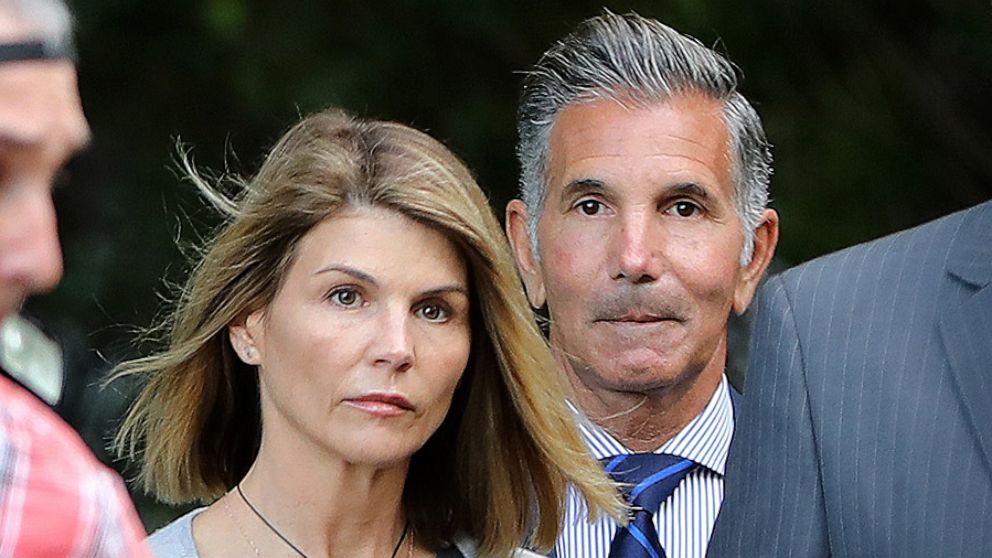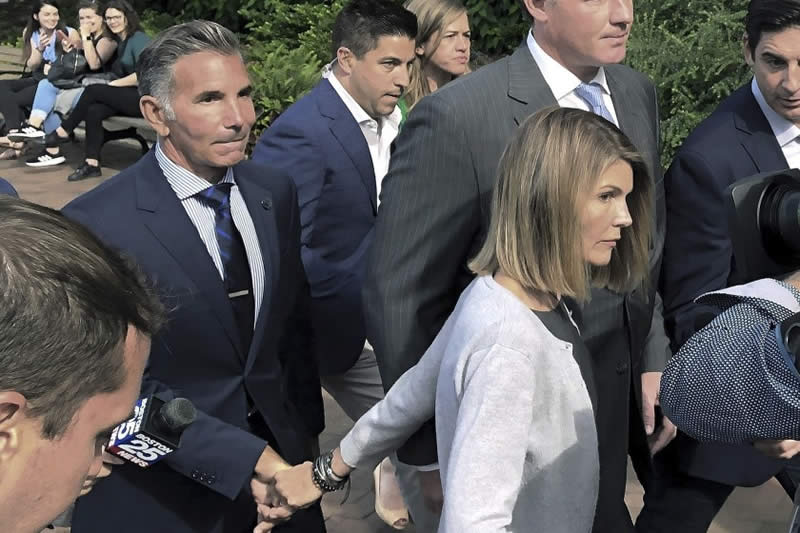Media reports depicted Loughlin’s vacation in ways that are different from the “family” trip purpose the U.S. probation office presented to a judge.
It’s not lost on the general public that Lori Loughlin’s recent luxury vacation to Mexico reeks of privilege, but media reports have also depicted her vacation in ways that are different from the “family” trip purpose she and the U.S probation office presented to the court.
If nothing else, this difference adds to the sense that the former TV actress and her husband, Mossimo Giannulli, are having a relatively easy time when it comes to returning to their opulent lives after stints in prison for their roles in the college admissions scandal.
Most people recently released from prison don’t have the money to travel anywhere, usually because their incarceration has left them impoverished and struggling to find work with a felony conviction on their records.
These regular ex-prisoners also may find strong resistance from their probation officers if they’re in the first year of supervised released and seek permission to travel to another part of the state, much less outside the country, advocates for federal prisoners say.
In the case of Loughlin and Giannulli, they got to travel to Mexico just six months after she left Dublin’s federal prison and two months after Giannulli was released from the federal facility in Lompoc.
Loughlin, 56, and Giannulli, 57, received the endorsement of a U.S probation officer and the approval of a U.S. District Court judge to travel to San Jose Del Cabo, a resort town on the Baja peninsula, from June 16 to June 21.

In a May 10 letter submitted to the court by U.S. supervising probation officer Chrissy Murphy, Loughlin and Giannulli said they were seeking permission to travel to Mexico to “spend time with family.”
However, reports by People, E! News, Vanity Fair, and other outlets said that Loughlin and Giannulli were in Mexico with “friends” and having fun golfing.
“It’s their first trip in a long time,” a source told People. “They flew to Cabo with friends. They were excited about the trip.”
E! News added they flew to Mexico by private jet, where Giannulli played golf with friends before lounging by the pool. It’s possible that family members were present on the trip, but that’s not how it comes across in the E! News and People reports.
“The guys all loved Mossimo and were jumping on him and having fun,” an eyewitness told E! News. “Lori joined them and seemed very friendly and happy.”
Overall, the eyewitness said: “They all seemed to have a great time and loved being there on vacation together.”
Does it matter that Loughlin and Giannulli reportedly were with friends instead of family, as the letter to the court specified?
It’s hard to say, though travel request forms for ex-prisoners on supervised release typically ask for detailed information about the purpose of a trip, who the ex-prisoner will be traveling with, mode of travel and where he or she will be staying.
It also seems like a “family” vacation, rather than a luxe golf outing with friends, sounds more palatable to a probation officer or a sentencing judge when it comes to granting a travel request.
Probation officers are mandated by federal law to ensure the public’s safety while promoting a prisoner’s re-entry into society. Helping the ex-prisoner develop and maintain “prosocial bonds to family, school, and work” is seen as promoting that reentry and reducing the likelihood the person will re-offend.

Loughlin and Giannulli made it sound like they were taking a family vacation with their daughters, Olivia Jade and Isabella Giannulli, which could be a way for the probation office to promote those prosocial bonds.
The former “Full House” star and her husband were convicted of paying $500,000 in bribes to get their daughters fraudulently admitted to the University of Southern California.
In any case, one prison consultant, who served time in prison and counsels people on pre- and post-release planning, said it sounded problematic if Loughlin and Giannulli described the trip as a “family” vacation when it might have been something else, or if they were with people not mentioned in their travel request.
Holli Coulman, of Pink Lady Prison Consultants, also said the system, giving probation officers wide discretion on when to grant travel requests, is pretty “arbitrary.”
“It all comes down to the probation officer,” she said.
That means that wealthy defendants such as Loughlin and Giannulli almost always have an advantage over regular prisoners in navigating the pre- and post-release system. That’s because they can hire attorneys and special consultants to help them advocate for their needs and special travel requests.
Coulman said she wasn’t allowed to leave areas of Southern California for two years after her release from prison after serving 15 months for misuse of a company credit card.
“I wasn’t allowed to leave my district, not past San Clemente and no further east than Yuma, Arizona,” Coulman said. “I couldn’t get permission to go see my mother in Colorado when she had emergency surgery.”
Coulman’s colleague, Larry Levine of Wall Street Prison Consultants, also said it was “highly irregular” for Loughlin or Giannulli to get permission to travel to another state, much less internationally, if they just left prison a few months earlier.
“Usually, they make you wait about 6 months to a year to let you travel,” said Levine.
A spokesperson for the U.S. Probation and Pretrial Services said she was barred from talking about any particular former prisoner’s case. She only confirmed that probation officers have discretion in deciding to grant travel requests.
Officers also have the discretion to impose certain conditions, such as that the person must check in at the local police department when arriving at their destination or a U.S. consulate when traveling internationally, Coulman and Levine said.
People on supervised release cannot travel outside the district of the U.S. Court system to which they have been released. In Loughlin and Giannulli’s case, they must receive permission anytime they travel outside of California’s Central District, which covers Los Angeles and five other counties. If they leave those counties without permission, they could be sent back to prison.
Loughlin was released from the federal prison in Dublin on Dec. 28 after serving two months for conspiracy to commit mail and wire fraud. Giannulli meanwhile, only got out of prison for Easter weekend, arriving home at his Los Angeles area mansion after serving five months at the prison in Lompoc.
In her letter to the court, Murphy said the probation office in California’s central district was “in support” of Loughlin and Giannulli’s requested “family” travel.
Murphy wrote that both Loughlin and Giannulli had thus far presented themselves “respectfully and cooperatively in all interactions” with their probation officers. They’ve also paid their fines of $150,000 and $250,00 each, and Loughlin has completed her community service; Giannulli is in the process of finishing his.



